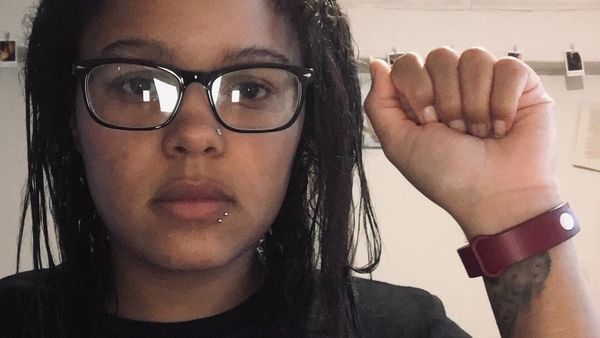Just a few days ago, a young cab driver, Mohamed Ali, was shot in the head by a police officer in Cairo, Egypt. The Interior Ministry of Egypt reports that the shooting was accidental, that the gun had gone off by mistake. Yet, eyewitnesses of the incident claim the officer pulled out his gun, loaded it, and even after people tried to restrain him, fired at Ali.
Unfortunately, this may sound gut-wrenchingly familiar. How many times have we heard policemen or police departments in the United States defend the murders of innocent men and women like Trayvon Martin, Sandra Bland, and Eric Garner? And how many times has the nation become outraged in response to their shooters' acquittals before a movement like Blacks Lives Matter came to the forefront?
Police brutality plagues more than just the U.S. In Egypt, police brutality was one of the many causes behind mass protests in 2011, better known as the Arab Spring. People were sick and tired of police officers gunning down non-threatening, often innocent citizens (though not necessarily for racial reasons, like in the U.S.), and receiving little to no repercussions. There was some reform after the protests, such as required human rights training, but it was terribly slow as there was little political will to bring about actual change.
And now, five years later, doctors are being assaulted in a Cairo hospital, lawyers are being tortured to death in a police station, and cab drivers are being shot in the head. Protestors are returning to the streets, demanding substantial reform from (relatively new) President Abdel-Fattah el-Sisi. On Thursday, they gathered outside a security directorate in Cairo and chanted "police are thugs" while carrying Ali's coffin. With the events of the Arab Spring barely half a decade behind him, Sisi's coming decisions are vital to the sociopolitical stability of Egypt.
Sisi, however, did not become president after the Arab Spring by being a puppet or a pushover. He has already promised to implement legislation that would directly address police brutality, particularly increasing the ability of the courts to hold policemen accountable and act as a deterrent. The details of how this legislation would play out, however, are not yet clear, since Sisi's promises came so soon after the protests regarding Ali's death.
All eyes are on Sisi to see whether or not he will make good on his promise to rectify a problem that has been persisting in the nation since well before the Arab Spring even started. Whether the policeman "accidentally" fired his gun or not, the people of Egypt have seen enough bloodshed at the hands of those who are meant to protect them.





















